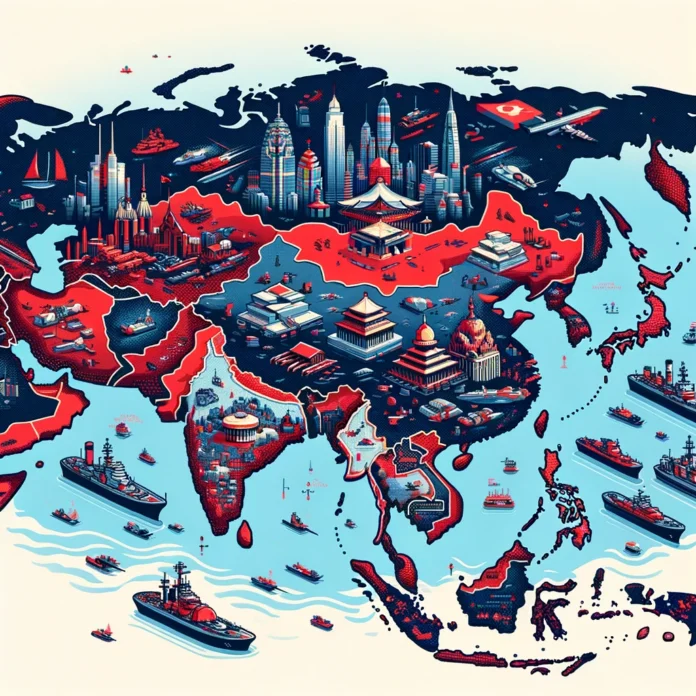Asia continues to be a region of high political tension, with ongoing trade disputes and territorial disagreements affecting relations between major powers. These issues are influencing economic policies and regional security strategies, with significant global implications.
Expanded Overview
The political dynamics in Asia are complex, shaped by historical conflicts, emerging alliances, and shifting economic powers. Countries such as China, Japan, India, and the ASEAN members are key players, each with distinct agendas and priorities.
Trade Tensions
Recent years have seen escalating trade tensions in Asia, primarily involving China and the United States. These tensions have manifested in tariffs, trade barriers, and a broader battle for technological supremacy. The ripple effects are felt across the region, as smaller economies navigate the disruptions to global supply chains.
Territorial Disputes
Territorial disputes remain a critical source of friction in Asia. The South China Sea is a notable hotspot, with multiple countries, including China, the Philippines, Vietnam, and Malaysia, claiming overlapping territories. These disputes are not only about land but also about the strategic control of maritime routes and access to resources.
Impact on Economic Policies
The ongoing disputes are compelling Asian countries to rethink their economic strategies. There is a noticeable shift towards self-reliance and the diversification of supply chains, as nations seek to mitigate the impacts of global political uncertainties on their economies.
Regional Security Strategies
Security strategies in the region are also evolving. The rise of military expenditures and strategic partnerships reflect the growing need for national security enhancements. The Quadrilateral Security Dialogue (Quad), involving the US, India, Japan, and Australia, exemplifies attempts to establish a strategic counterbalance in the region.
Global Implications
The political tensions in Asia have far-reaching implications. They affect global markets, international relations, and the regulatory environment. As Asia plays an increasingly significant role in global affairs, understanding these dynamics is crucial for policymakers and international businesses alike.
Conclusion
Asia’s political landscape is marked by its complexity and the significant global stakes involved. Addressing these trade tensions and territorial disputes requires a multifaceted approach that includes diplomacy, strategic economic policies, and international cooperation. The future stability of the region hinges on the ability of its leaders to navigate these challenging dynamics effectively.



